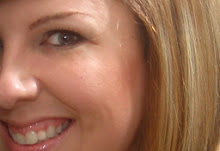
January's BookPeace Like a River, by Leif EngerMeeting DateSaturday, 26 January 20081000a at Jen's house(e-mail for address/directions/carpool info)Brunch will be served!About the BookFrom Amazon.com:
Born with no air in his lungs, it was only when Reuben Land's father, Jeremiah, picked him up and commanded him to breathe that Reuben's lungs filled. Reuben struggles with debilitating asthma from then on, making him a boy who knows firsthand that life is a gift, and also one who suspects that his father is touched by God and can overturn the laws of nature.
The quiet 1960's midwestern life of the Lands is upended when Reuben's brother Davy kills to marauders who have come to harm the family. The morning of his sentencing, Davy -- a hero to some, a cold-blooded murderer to others -- escapes from his cell, and the Lands set out in search of him. Their journey is touched by serendipity and the kindness of strangers, and they cover territory far more extraordinary than even the Badlands where they search for Davy from their Airstream trailer.
Sprinkled with playful nods to Biblical tales, beloved classics such as Huckleberry Finn, the adventure stories of Robert Louis Stevenson, and the westerns of Zane Grey, Peace Like A River is at once a heroic quest, a tragedy, a love story, and a haunting meditation on the possibility of magic in the everyday world.
Discussion Points
From ReadingGroupGuides.com:
- Swede, Reuben's imaginative, prolific, and precocious younger sister, creates an epic poem about a cowboy named Sunny Sundown. Talk about Sunny's ongoing saga as an ironic commentary on Reuben's larger narrative. What are the parallels? Besides the Sunny Sundown text, several other outlaw tales, literary allusions, biblical legends, and historical asides are offered—by Swede or by Reuben himself. Identify a few of these stories-within-the-story, explaining how each enriches or influences the main narrative.
- Both during Davy's trial and after his escape from prison, we encounter a variety of public viewpoints on what Reuben's brother has done. Such viewpoints, usually presented as personal letters or newspaper editorials, are always steadfast yet often contradictory. What does Reuben seem to realize about the so-called "court of public opinion," in light of these viewpoints?
- Prayer is described in many ways, and on many occasions, in Peace Like a River. Reading this book, did you discover anything about the activity of, reasons for, or consequences of prayer? What larger points—about religion and human nature, say—might the author be making with his varied depictions of people at prayer? For instance, when remembering a prayer he said that included blessings for even his enemies, Reuben comments thus regarding Jape Waltzer: "Later I would wish I'd spent more time on him particularly" (p. 285). Why does Reuben feel this way? What power does he recognize in his own prayers? Discuss the impact prayer has on Reuben, and how it transforms him.
- Much of this novel concerns the inner life of childhood: imagination, storytelling, chores, play, and school life. Discuss the author's portrayal of childhood. Do the children depicted here seem realistic? Why or why not?
- Remembering his own childhood, author Leif Enger recently noted: "I grew up squinting from the backseat at gently rolling hills and true flatlands, where you could top a rise and see a tractor raising dust three miles away. So much world and sky is visible, it's hard to put much stock in your own influence." Does this type of relationship between the individual and the natural world appear in Peace Like a River? If so, where? Identify key passages or scenes where the characters seem inferior to the landscape, or even at the mercy of it.
- Finishing his story, Reuben notes: "You should know that Jape Waltzer proved as uncatchable as Swede's own Valdez" (p. 309). What do the characters of Jape and Valdez represent in this novel? Conclude your discussion by comparing and contrasting Peace Like a River with the traditional morality play—the symbolic drama (dating back to medieval times) based on the eternal struggle between Good and Evil.
Hope to see you next week!








